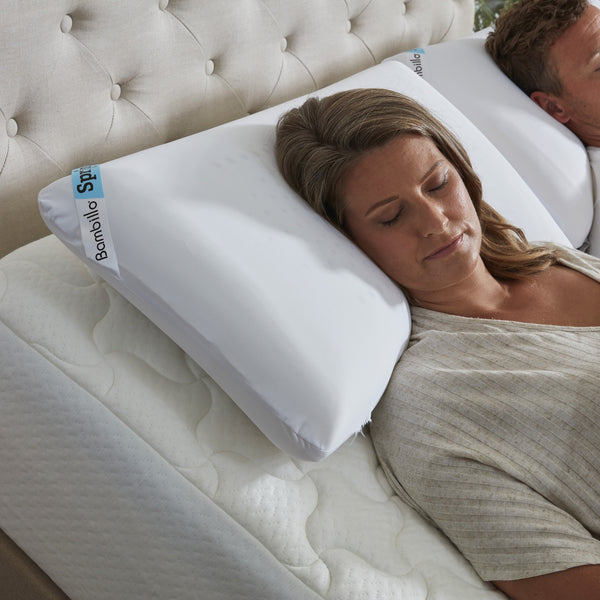Historical evidence shows that our forefathers slept differently to us. While a single 7 - 8 hour stretch is now considered ideal, our ancestors slept in two discrete blocks of time, sometimes referred to as a bi-modal sleep pattern. The first sleep lasted approximately 4 hours, followed by 1 - 2 hours of wakefulness where people read, wrote, talked, prayed, had sex, or lay in quiet contemplation.
Historian Roger Ekirch of Virginia Tech published a paper on this subject in 2001, using knowledge gained from 16 years of research. He found more than 500 references to support the existence of a first and second sleep pattern, drawn from sources as diverse as literature, prayer books, medical texts and court documents. These were days before electric lights and heating, when nights were less suited to industry and recreational activities and the hours of darkness were considered the domain of ne’er do wells such as drunks and criminals. Within a few hours of sunset, people would retire for their first sleep.
It appears the practice started to wane during the latter part of the 17th century. By the 1920s, a single sleep had become the accepted norm across all sections of society.
It appears the practice started to wane during the latter part of the 17th century. By the 1920s, a single sleep had become the accepted norm across all sections of society.
The lesson from this little piece of history? If you wake up at night and lie awake awhile, try not to worry about it. For one thing, that will make it harder to settle back to sleep. But for another, this type of segmented sleep did our ancestors no harm at all, in fact it seems there were some real benefits, including greater time for intimacy and thoughtful consideration of their dreams. If the pressures of contemporary life have led to deficits in these areas, it could be an opportunity to relax and enjoy.
There are conflicting theories about how sleep has changed since the advent of industrialisation and electricity. Some researchers believe that the prevalence of artificial light has affected our circadian rhythms, causing us to sleep less than our ancient ancestors. Yet recent studies conducted in modern day hunter-gatherer and hunter-horticulturist societies in Africa and Bolivia appear to disprove this assertion. Despite having no access to electricity and spending evenings around a campfire, the people of these traditional societies slept on average 6 hours and 25 minutes per night, slightly less than their TV watching, internet-dependent counterparts in the West.
One interesting pattern this research identified related to temperature. The people studied invariably fell asleep when the temperature was falling, waking when it reached its lowest point as the sun was rising. The researchers hope to utilise this phenomenon to assist people with insomnia, as they may benefit from sleeping in a room that gets steadily cooler.
There is a sense in the modern world that sleep has become scarce, a casualty of our busy lifestyles. Yet as we learn more about the vital importance of sleep to our health and wellbeing, this knowledge may compel us to rethink our priorities.
Sleep across cultures
There are marked differences in sleep patterns across cultures. In different parts of the world, sleeping habits are influenced by local environments, cultural norms and beliefs.
There are marked differences in sleep patterns across cultures. In different parts of the world, sleeping habits are influenced by local environments, cultural norms and beliefs.
Co-sleeping with babies and infants remains common in developing societies, while in the West concerns over accidental smothering have caused the practice to become less acceptable.
Anthropologist John Whiting evaluated the sleeping habits of 136 cultures. The most common configuration of sleeping arrangements was mother and baby together and the father in another place (50%).
Egyptians habitually sleep for two hours in the afternoon, and another six at night. They rarely sleep alone, sharing quarters with several family members.
Men and women were more likely to sleep together in cold climates.
A 2002 study of 10 developed countries found that people in Japan and Korea slept the least, averaging 6 – 7 hours, while most French people sleep for close to 9 hours per night, with Spanish and Americans close behind on 8 ½ hours.
Naps were more common for Brazilians at 42%, but rare for Japanese at just 12%.
Insomnia and sleep issues were experienced by over 32% of Belgians, while only 10% of Austrians had these problems.
Sleeping medications were often used by South Africans (53%) and Portugese (46%) but rare for Austrians (10%) and Japanese (15%).
Other studies found that ¼ of people in the U.S., Canada and the U.K. hardly ever get a decent night’s rest during the working week.
47% of people in the U.S. and 62% of people in Mexico pray or meditate in the hour before they settle down to sleep.



